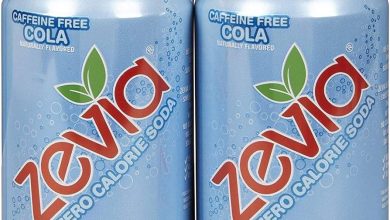Yardlong Bean (Mature Seeds, Raw)
Yardlong beans, also known as Chinese long beans or asparagus beans, are a highly nutritious legume that can add an excellent source of plant-based protein and other essential nutrients to your diet. These beans, particularly in their mature seed form, are rich in a variety of vitamins, minerals, and dietary fiber, making them a healthy and versatile ingredient in many dishes.
Nutritional Information (per 100g of raw seeds):
| Nutrient | Amount |
|---|---|
| Energy | 347 kcal |
| Protein | 24.33 g |
| Total Fat | 1.31 g |
| Saturated Fat | 0.339 g |
| Carbohydrates | 61.91 g |
| Dietary Fiber | 11.0 g |
| Sugars | 0.0 g |
| Calcium | 138 mg |
| Iron | 8.61 mg |
| Magnesium | 338 mg |
| Phosphorus | 559 mg |
| Potassium | 1157 mg |
| Sodium | 17 mg |
| Zinc | 3.5 mg |
| Copper | 0.879 mcg |
| Manganese | 1.59 mg |
| Selenium | 8.2 mcg |
| Vitamin C | 1.6 mg |
| Thiamin (Vitamin B1) | 0.887 mg |
| Riboflavin (Vitamin B2) | 0.235 mg |
| Niacin (Vitamin B3) | 2.158 mg |
| Vitamin B6 | 0.371 mg |
| Folate (Vitamin B9) | 658 mcg |
| Vitamin B12 | 0.0 mcg |
| Vitamin A | 3.0 mcg |
| Vitamin E | 0.0 mg |
| Vitamin D2 | 0.0 mcg |
Health Benefits & Dietary Information:
-
High in Protein: With 24.33 grams of protein per 100 grams, yardlong bean seeds are a great option for those looking to boost their plant-based protein intake. Protein is vital for muscle growth, tissue repair, and overall cellular function.
-
Rich in Fiber: Offering 11 grams of fiber per 100 grams, these beans promote healthy digestion, regulate blood sugar levels, and contribute to a feeling of fullness, aiding in weight management.
-
Mineral-Rich: Yardlong beans are an excellent source of essential minerals like magnesium, phosphorus, and potassium. Magnesium supports nerve function, phosphorus plays a key role in bone health, and potassium helps maintain proper fluid balance and muscle function.
-
Low in Fat: At just 1.31 grams of total fat, including only 0.339 grams of saturated fat, these beans are a heart-healthy addition to your diet.
-
Vitamins & Antioxidants: Though modest in vitamin content, they still provide small amounts of Vitamin A, Vitamin C, and a range of B-vitamins such as thiamin, riboflavin, and niacin. These vitamins support skin health, immune function, and energy metabolism.
Allergen Information:
Yardlong beans are generally considered safe for most people. However, as with all legumes, those with legume allergies or sensitivities should consult their healthcare provider before consuming them.
Dietary Preferences:
Yardlong beans are naturally vegetarian, vegan, gluten-free, and dairy-free. Their high protein and fiber content make them a suitable ingredient for those following plant-based diets, while also fitting well into low-fat and heart-healthy meal plans.
Advice:
Yardlong beans can be cooked in a variety of ways, including steaming, stir-frying, or boiling. When preparing raw seeds, they are often soaked or cooked to enhance their digestibility. They make a great addition to soups, salads, and side dishes or can be incorporated into grain bowls for added protein.
Conclusion:
Yardlong bean seeds offer a nutritious and versatile option to diversify your meals. With their high protein, fiber, and mineral content, they are a valuable addition to any diet. Whether you enjoy them in salads, soups, or as a protein-packed side dish, yardlong beans provide both health benefits and a delicious flavor.










